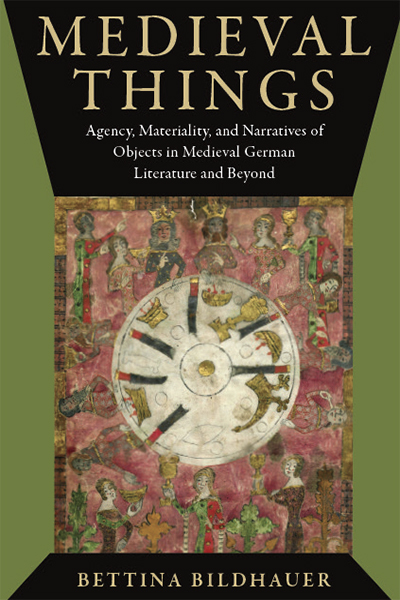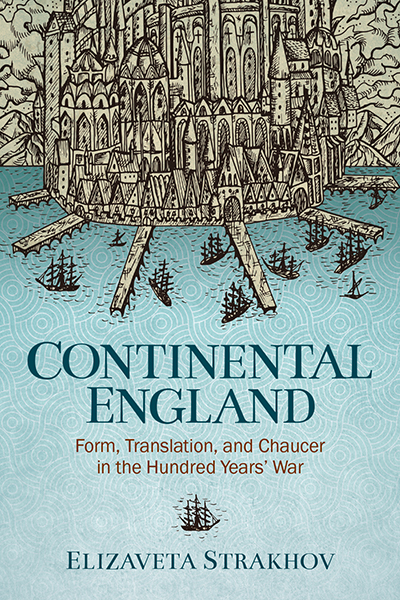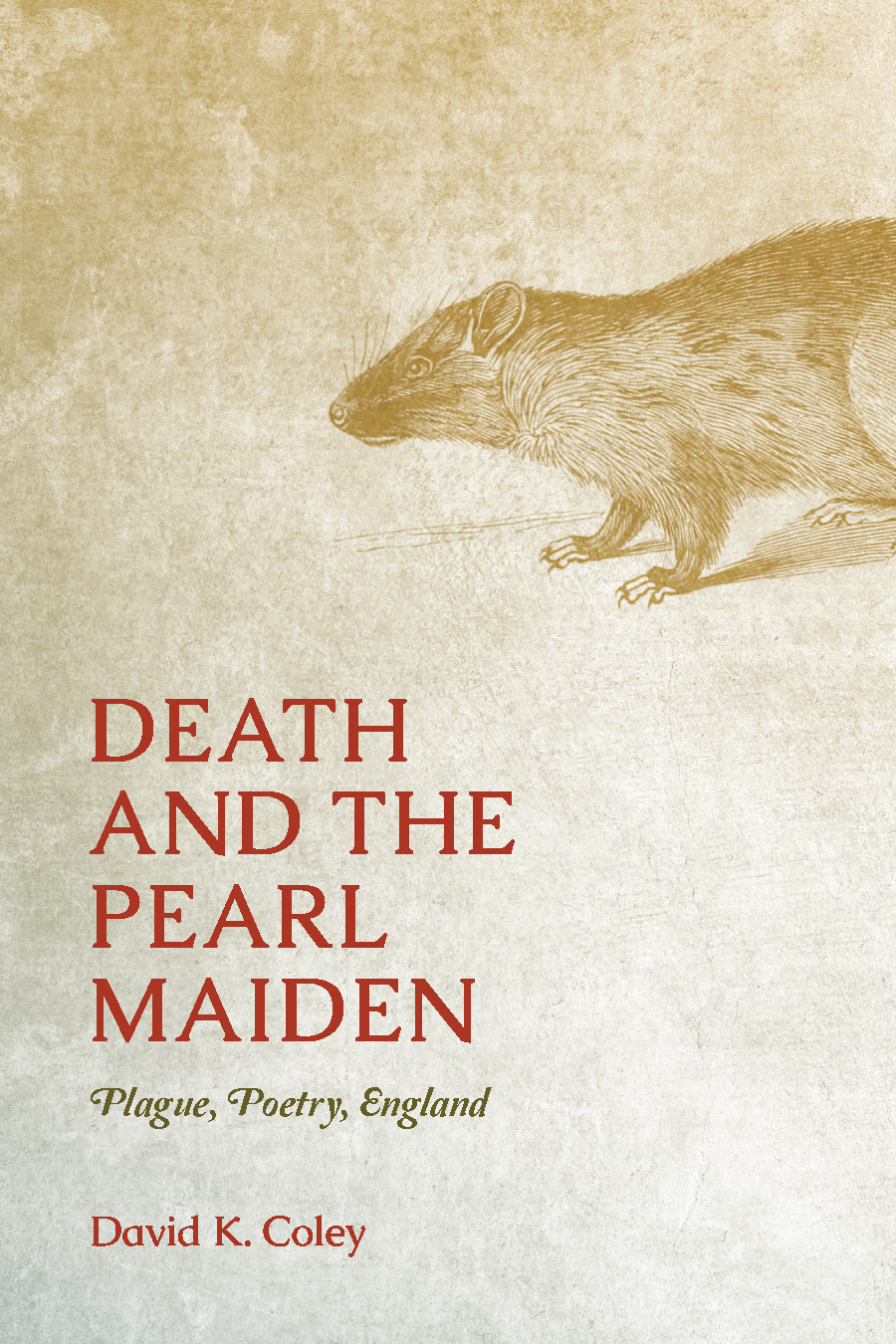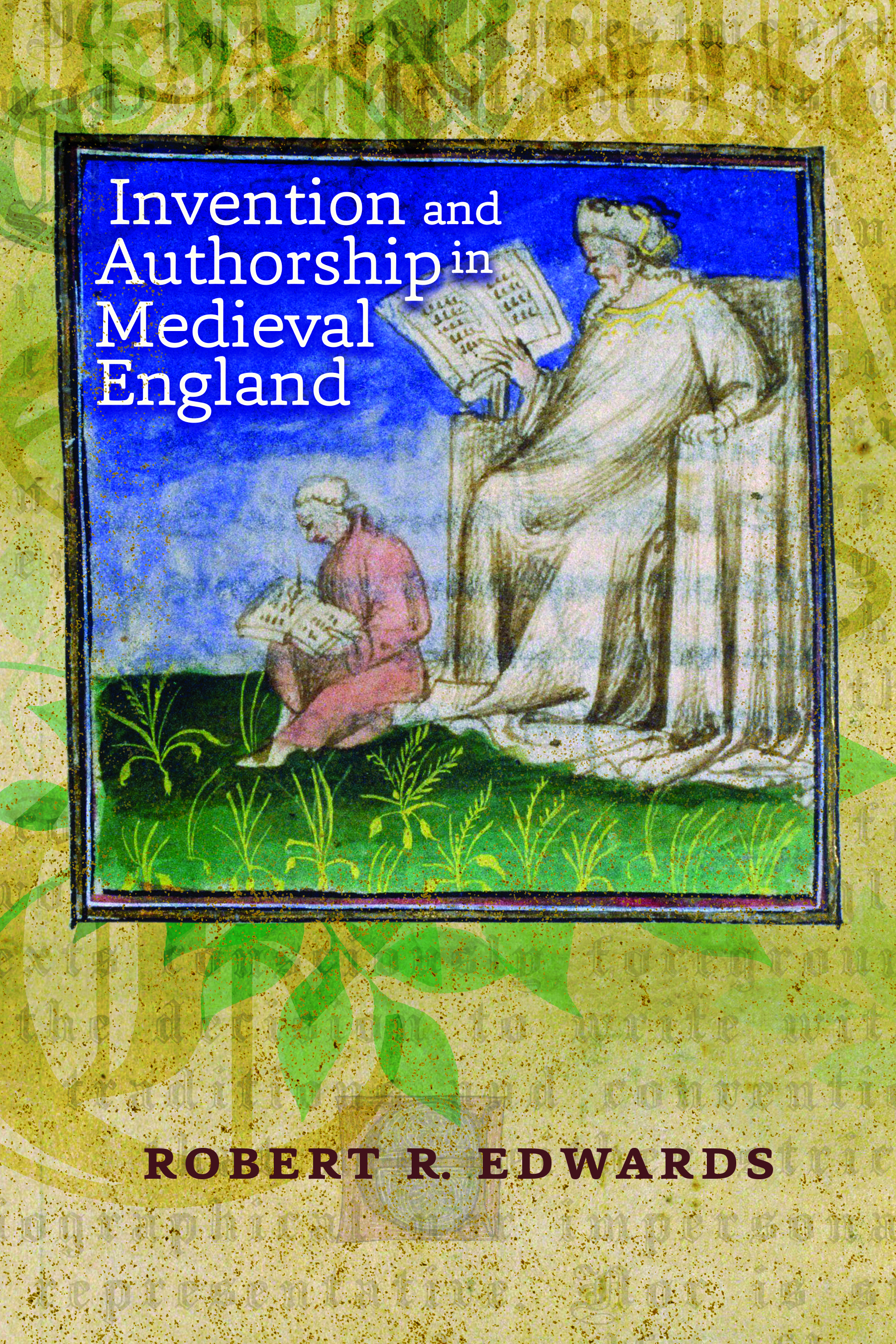“Authoritative and absorbing....Continental England uncovers intricate webs of reference that evoke an ongoing and vibrant discourse about literary tradition, culture, and politics....Any scholar of fourteenth- and fifteenth-century Anglo-French literary culture, or indeed anyone interested in translation studies or formalist historicism, will be continuously and cumulatively enriched by their encounter with this book.” —Jessica Rosenfeld, Modern Language Quarterly
“The master-stroke of Continental England … is its focus on form. This gives it a precision that binds its arguments together across authors, languages and locations; a precision that is technically adept and richly informative.…Strakhov’s brilliance is the leanness of her writing in argumentation and analysis, and the singularity of vision that weds wide-wheeling range to clarity and brevity.” —Joanna Bellis, Anglistik
“Continental England ought to have many readers and appreciators: literary critics, prosodists, cultural and literary historians, international-relationists, medievalists, poets, the millions of people concerned over Britain’s present standing in the Continent, and especially translators…Elizaveta Strakhov’s [book] is a tribute to our more humble craft.” —John T. DuVal, Translation Review
“Elizaveta Strakhov’s energetic and ambitious study…makes a very specific and potentially far-reaching intervention in the broad literary-historical field that is concerned with the linguistic and cultural relations and rivalries between the French and the English during this period.…This learned and adventurous book reorients our understanding of the work of several prominent poets…and it makes a strong case for seeing medieval lyric as a profoundly political form.” —Ruth Evans, Forum for Modern Language Studies
“Elizaveta Strakhov’s fascinating and compelling book establishes her as one of the most interesting and important voices emerging in a new generation of Chaucer scholars.…The book is written with clarity and elegance throughout, and is tightly textually focused and analytical.” —Marion Turner, Journal of English and Germanic Philology
“Prior arguments (or assumptions) for understanding England as an isolated island nation that progressively asserted its linguistic separateness are challenged by Strakhov to the point of dismantlement, which will lead (if we can do it, and if our field survives) to a reimagination and re-conceptualization of how we teach the history of ‘English’ literature in these centuries.” —Michael Calabrese, The Medieval Review
Scholars have often viewed the Hundred Years’ War (c. 1337–1453) between England and France as sharpening animosity and isolationism. Further, medievalists have often characterized translator–source relationships as adversarial. In Continental England, Elizaveta Strakhov develops a new model, reparative translation, as a corrective to both formulations. Zeroing in on formes fixes poetry—and Chaucer as a leading practitioner—she shows that translation played two essential, interrelated roles: it became a channel for rebuilding fragmented communities, and it restored unity to Francophone cultural landscapes fractured by war. Further, used in particular to express England’s aspirational relationship to Francophone culture despite the ongoing war, translation became the means by which England negotiated a new vision of itself as Continental rather than self-contained. Chaucer’s own translation work and fusion of Francophone and Italian humanist influences in his poetry rendered him a paradigmatic figure for England’s new bid for Continental relevance. Interpreting Chaucer’s posthumous canonization as a direct result of reparative translation, Strakhov shows how England’s transition from island to Continental constituent problematizes our contemporary understandings of nation-bound authors and canons.
“Strakhov’s book is carefully written, well researched, and admirably attentive to the historical contexts that shaped cross-Channel literary production during the fourteenth and fifteenth centuries....[It] will itself serve as the foundation for important new work in medieval translation studies, transnational literary studies, the history of the book, and Middle English and French literary history.” —Taylor Cowdery, Speculum
“Recent decades have seen an energetic reassessment of the role of French language and culture in late medieval English literature…[Continental England] is an ambitious new contribution to this burgeoning field.” —Philip Knox, The Review of English Studies
“Provocative and powerful…As a re-visioning of English literary culture at the end of the Middle Ages, [this book] is superb.” —Samantha Katz Seal, Digital Philology: A Journal of Medieval Cultures
“Strakhov provides a great deal of persuasive argument and a number of engaging readings, characterized by an intellectual energy and interest that will surely be productive of a number of future studies…Strakhov’s book is not a little pertinent to the fractures of our present moment.” —William T. Rossiter, Translation and Literature
“Medievalist historians and literary studies scholars will welcome Strakhov’s attendance to the late medieval lyric genre known as formes fixes…This extensive study culminates in a fresh understanding … Strakhov’s text is a worthwhile and scholarly elucidation of a time and its poetry.” —Jeffrey Moser, Rocky Mountain Review
“Following in the footsteps of Ardis Butterfield’s field-changing book The Familiar Enemy, Elizaveta Strakhov’s work serves not only as a corrective but also as a blueprint for how to carry out work that understands the ways in which English poetic production operated on a wider European stage.” —Thomas A. Prendergast, author of Chaucer’s Dead Body: From Corpse to Corpus
“In her fascinating study of form as the nexus for tracing England’s cultural position in a broader Francophone world, Strakhov recalibrates our sense of the ‘cross-Channel’ relationships that span languages, geographies, and generations of writers and compilers, culminating in a compelling reformulation of the work of translation itself.” —Steele Nowlin, author of Chaucer, Gower, and the Affect of Invention
Elizaveta Strakhov is Assistant Professor of English at Marquette University.
Contents
Acknowledgments
Introduction Attending to Form in Medieval Translation
Chapter 1 Why Formes Fixes Lyric?
Chapter 2 Continental Conversations about War, Poetry, and the Place of England in Francophone Europe
Chapter 3 The Monolingualism of the Other: Deschamps’s Ballade to Chaucer and Chaucer’s Prologue to the Legend of Good Women
Chapter 4 A Dual Language Policy for Lancastrian England: John Gower’s Trentham Manuscript and Thomas Hoccleve’s Huntington Holographs
Chapter 5 Laureall Poete, Grant Translateur: John Shirley’s and John Lydgate’s Chaucers
Coda “Anglicatus in Balade”
Works Cited
Index
Related Titles:

Medieval Things
Agency, Materiality, and Narratives of Objects in Medieval German Literature and Beyond
Bettina Bildhauer




